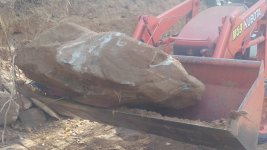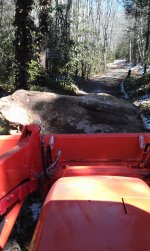I have seen the ads for beet juice for tires. I have not been able to find pricing. In order to get pricing I must fill out a form with all my info and then I will get a quote. But after speaking to a few folks they spent over 300 bucks per 11.2 x 24 tires. I assume beet juice is used because of all the sugar dissolved into the beet juice. Looking at my Yanmar YM2310 manual it says the tires can be loaded with 235 pounds of a calcium chloride and water solution. Water will dissolve, by weight, pretty much the same amount of sucrose, which is table sugar. Since water weighs about 8 pounds per gallon if I was to make a saturated solution of sugar and water I would need to buy 235 pounds of sugar. Really though, because of the way sugar is packaged in bulk I would need to buy 250 pounds. A quick look online resulted in me finding sugar for 80 cents per pound delivered. So 200 bucks for 250 pounds of sugar. But sugar dissolves 2.4 times, as much, by weight, as calcium chloride into water. So I would need to use more water and less sugar to get to the 235 pound weight shown in the manual. It looks like I can just add sugar water to my innertubes instead of beet juice. Is there a good reason(s) to not use sugar water instead of beet juice? Will it eat up my tubes? I don't get it. Since the sugar water is way less corrosive than calcium chloride I wonder why I have never seen a sugar water solution being mentioned for adding weight. Anybody here have any info on this?
Thanks,
Eric

